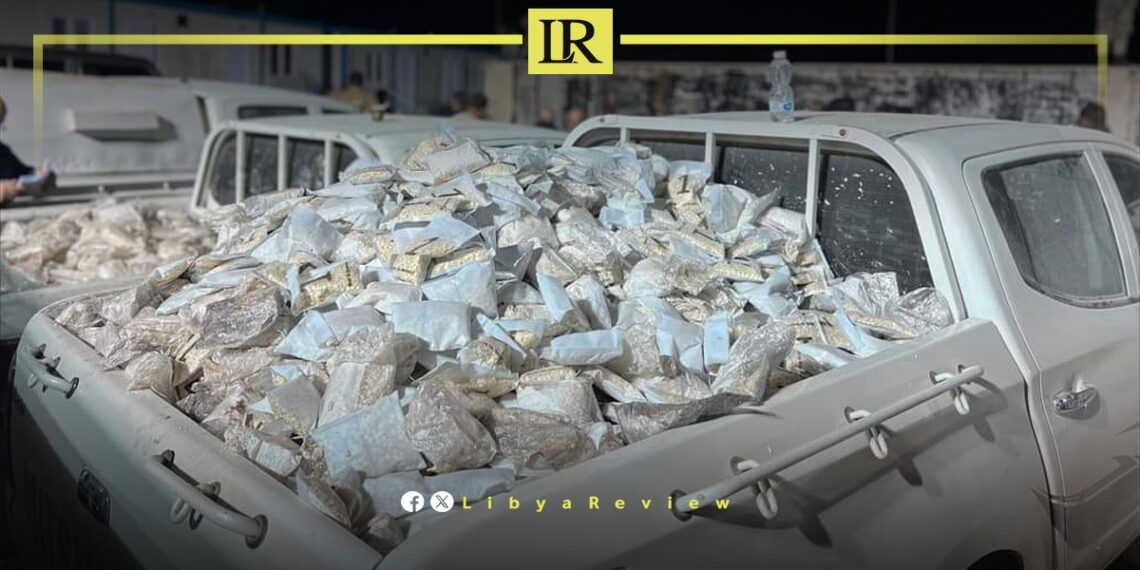Libyan Customs at the Benghazi seaport have seized approximately 18 million tablets of Captagon, a controlled substance, concealed within three containers shipped from Syria. These containers were falsely declared to contain fresh apples and were linked to a company named “Dar Al-Salam.”
The discovery was made during a meticulous inspection process, revealing the tablets hidden in a sophisticated manner. This operation was conducted by the Benghazi seaport customs inspection department and the anti-smuggling and narcotics department, with support from the Libyan National Army and oversight by the Public Prosecution.
A total of 17,812,300 Captagon tablets were confiscated and immediately disposed of, with evidence being collected for further legal action.
In a related operation, the Libyan Anti-Narcotics Agency, in collaboration with the Libyan National Army, intercepted a significant cocaine shipment at the same seaport. Based on intelligence from Saudi Arabia, the shipment from Ecuador, purportedly containing bananas, was investigated, leading to the discovery of approximately 128 kg of raw cocaine. This amount could yield up to 640 kg when processed, making it the country’s largest cocaine seizure to date. The operation employed sniffer dogs and an X-ray scanner, revealing the drugs hidden in the container’s flooring, even though it had passed initial inspections. One individual associated with the customs service has been arrested, with further investigations aimed at dismantling the smuggling network.
Additionally, the Libyan Attorney General’s Office reported the seizure of over 8 million Pregabalin pills in a previous month, hidden within a container from India at the Port of Benghazi. These efforts underscore the ongoing challenges faced by Libyan authorities and their dedication to combating the illicit drug trade.


